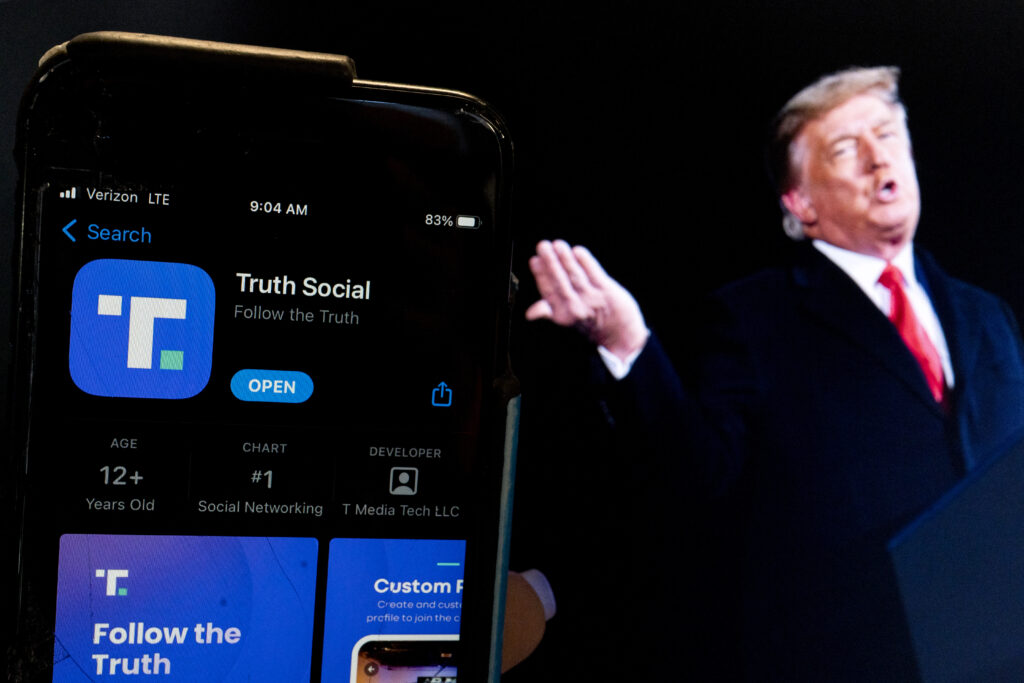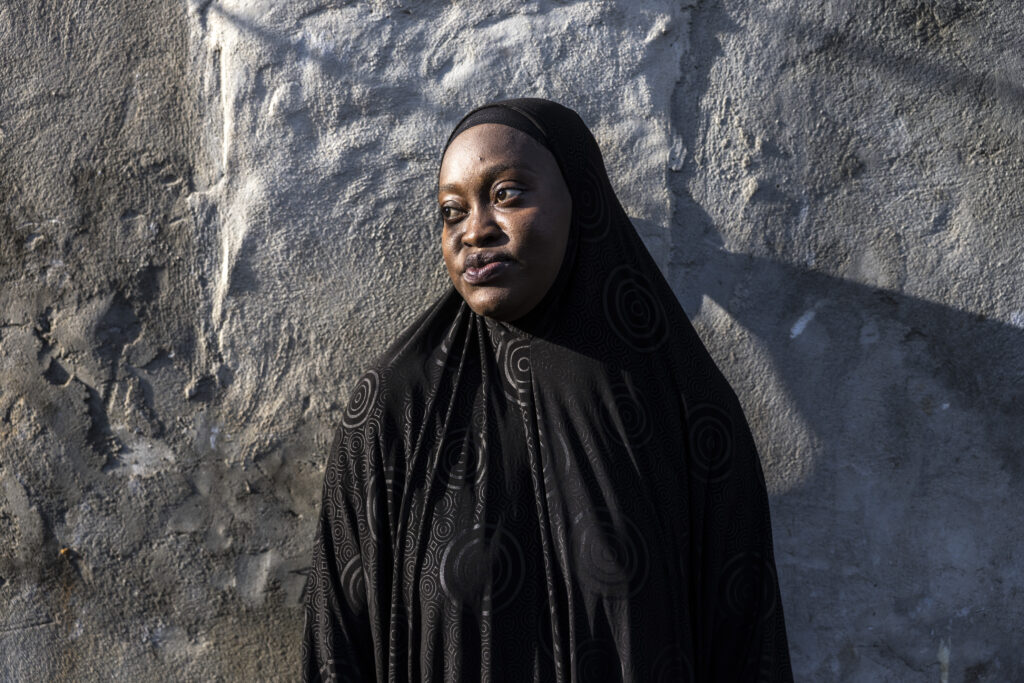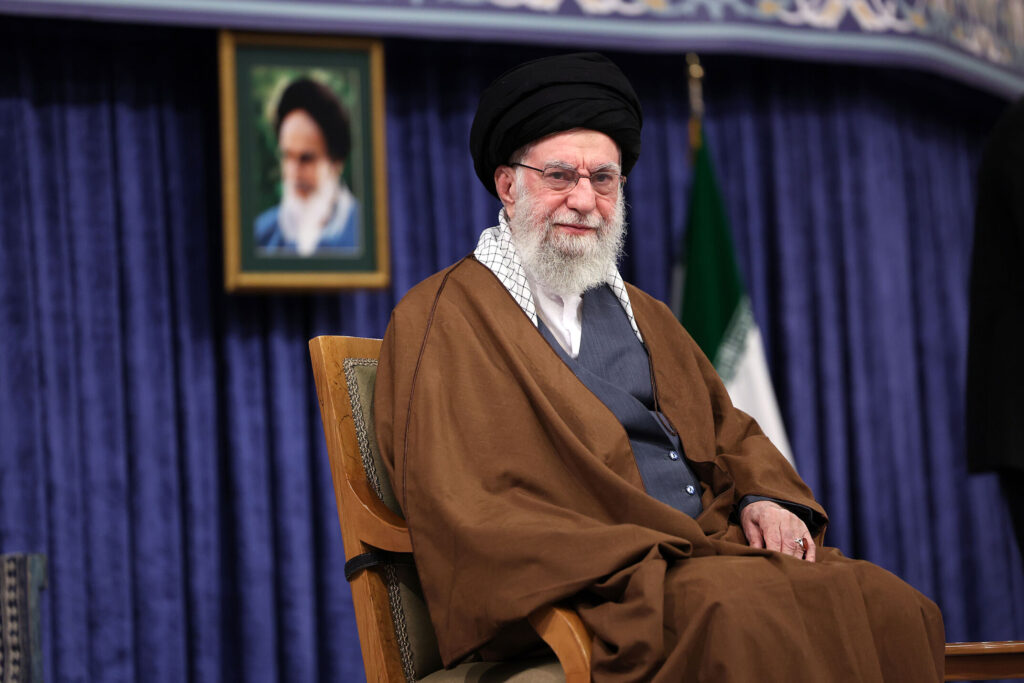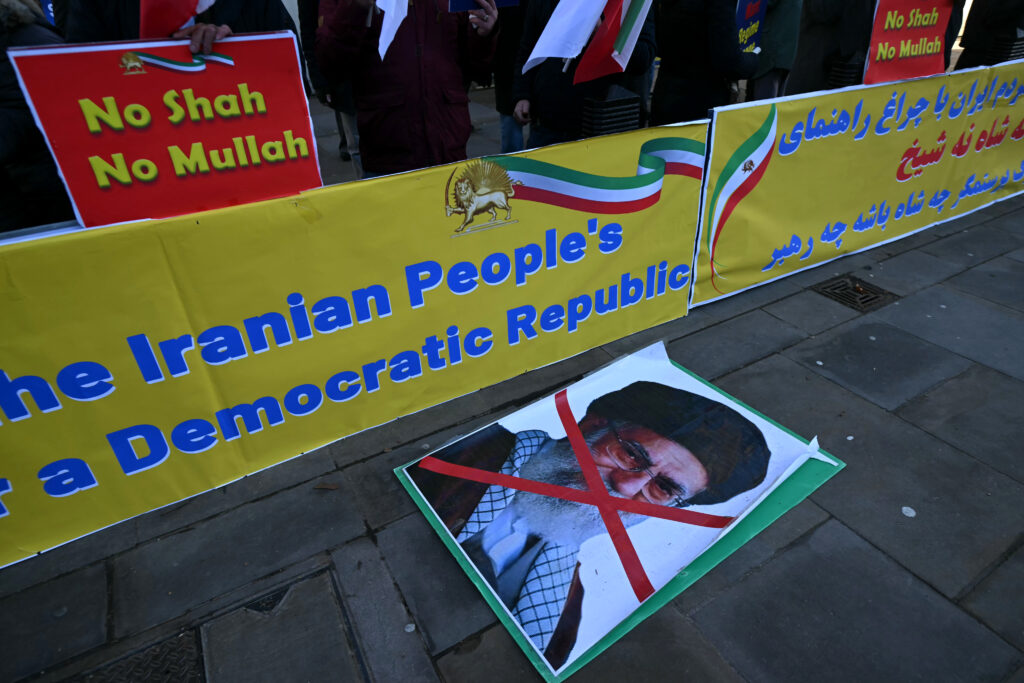Les images générées par l’IA, une stratégie de communication pour Trump
Jouer au football dans le Bureau ovale, boire un cocktail sous le soleil à Gaza… Depuis son retour au pouvoir il y a un an, Donald Trump ne cesse de se mettre en scène dans de fausses images générées par intelligence artificielle.Le président américain inonde sa plateforme Truth Social de ces images ultra-réalistes, une stratégie …
Les images générées par l’IA, une stratégie de communication pour Trump Read More »
Privés de parents: au Salvador, les enfants victimes de la lutte anti-gangs
Les poussins piaillent avec impatience quand Jade arrive pour les nourrir. Depuis que son père a été arrêté dans le cadre de la lutte acharnée contre les gangs au Salvador, l’adolescente doit travailler à la ferme de sa grand-mère et supporter les railleries à l’école.Le président de droite Nayib Bukele, au pouvoir depuis 2019, se …
Privés de parents: au Salvador, les enfants victimes de la lutte anti-gangs Read More »
“Je les ai suppliés”: une mère guinéenne expulsée du Bélarus sans son bébé
Cela fait neuf mois que Mariam Soumah, une Guinéenne de 23 ans, dit ne pas avoir vu sa petite Sabina. La mère se trouve en Guinée, en Afrique de l’Ouest, mais sa fille est, contre son gré, dans un orphelinat au Bélarus.La jeune migrante a été expulsée sans son bébé il y a quelques mois …
“Je les ai suppliés”: une mère guinéenne expulsée du Bélarus sans son bébé Read More »
Suisse: l’autorité de la concurrence ouvre une enquête contre Microsoft
L’autorité suisse de la concurrence a annoncé jeudi avoir ouvert une enquête contre le géant américain Microsoft concernant le prix de ses licences. Les autorités de la concurrence ont reçu des dénonciations faisant état d’augmentations très fortes du prix des licences liées aux produits de Microsoft en Suisse, a indiqué la Commission de la concurrence (Comco) …
Suisse: l’autorité de la concurrence ouvre une enquête contre Microsoft Read More »
Iran: Ali Khamenei, un dirigeant impitoyable confronté à son plus grand défi
Fin manoeuvrier qui n’a jamais reculé devant le recours à la répression, le guide suprême Ali Khamenei a surmonté une succession de crises à la tête du système théocratique iranien, mais apparaît désormais contesté comme jamais. Agé de 86 ans, il domine la République islamique depuis qu’il en a pris la tête, à vie, en 1989, …
Iran: Ali Khamenei, un dirigeant impitoyable confronté à son plus grand défi Read More »
Iran vows to defend itself as Trump says will ‘watch it and see’
Iran vowed on Thursday to defend itself against any foreign threat, after US President Donald Trump said he would “watch it and see” about military action over the crackdown on protesters.Iran’s judiciary said a protester who the United States and rights groups feared faced imminent execution would not be sentenced to death, after Trump had warned of strikes should people arrested for demonstrating be killed.The protests were sparked by economic grievances but evolved rapidly into a nationwide movement that has constituted the greatest threat to the Islamic republic since its inception in 1979. Rights groups say the crackdown by authorities, who exercise zero tolerance for dissent, has left at least 3,428 people dead. They also accuse the country’s theocratic leaders of using an internet blackout to cover up the brutality of their crackdown.In telephone talks on Thursday, Iranian Foreign Minister Abbas Araghchi told Saudi Arabian counterpart Faisal bin Farhan of the importance of “global condemnation of foreign interference in the internal affairs of regional countries”.The developments came hours ahead of a UN Security Council meeting on Iran later on Thursday, which was requested by the US.On Wednesday, Saudi Arabia informed Iran it would not allow its airspace or territory to be used to attack it, two sources close to the kingdom’s government told AFP.Up until Wednesday, the United States was threatening military action against Iran should it carry out the death penalty against people arrested over the protests.In an announcement at the White House, Trump said he had now received assurances from “very important sources on the other side” that executions would not go ahead.”They’ve said the killing has stopped and the executions won’t take place — there were supposed to be a lot of executions today and that the executions won’t take place — and we’re going to find out,” Trump said.Asked by an AFP reporter in the Oval Office if US military action was now off the table, Trump replied: “We’re going to watch it and see what the process is.”The comments sent oil prices plunging on Thursday, as concerns eased of a looming supply shock in energy markets. Iran makes up around three percent of global oil production. All eyes were on protester Erfan Soltani, 26, in prison in Karaj outside Tehran since his arrest, who is facing charges of propaganda against Iran’s Islamic system and acting against national security.On Thursday, the Iranian judiciary said Soltani has “not been sentenced to death” and if he is convicted, “the punishment, according to the law, will be imprisonment, as the death penalty does not exist for such charges”.- ‘No hanging today or tomorrow’ -Iran’s judiciary chief had vowed fast-track trials for those arrested, and prosecutors have said some detainees will face capital charges of “waging war against God”.State media reported hundreds of arrests and the detention of a foreign national for espionage, without giving details.In an interview with US network Fox News, Iranian Foreign Minister Abbas Araghchi said there would be “no hanging today or tomorrow”, while accusing US ally Israel of orchestrating violence in Iran, without providing evidence.Araghchi contends the protests devolved into widespread violence between January 7 and 10 because they were infiltrated by external “elements who had a plan to create a big number of killings in order to provoke President Trump to enter into this conflict and start a new war against Iran”.The authorities imposed an unprecedented internet blackout on January 8, as protests exploded in size and intensity, severely hampering the demonstrators’ ability to communicate with each other and the outside world.Iran’s Minister of Justice Amin Hossein Rahimi echoed Araghchi’s allegation, telling state news agencies that after January 7, “those weren’t protests any longer” and anyone who was arrested on the streets then “was definitely a criminal”.- ‘Full control’ -Araghchi said the Iranian government was “in full control” and reported an atmosphere of “calm” after what he called three days of “terrorist operation”.Iran also struck a defiant tone about responding to any US attack, as Washington appeared to draw down staff at a base in Qatar that Tehran targeted in a strike last year.Iran targeted the Al Udeid base in June in retaliation for US strikes on its nuclear facilities. Ali Shamkhani, a senior adviser to Supreme Leader Ayatollah Ali Khamenei, warned Trump the strike showed “Iran’s will and capability to respond to any attack”.Fears of possible US military action continued to rile the region, and Turkey on Thursday said it opposed a military operation against Iran. – ‘Zero protests’ -G7 nations said Wednesday they were “deeply alarmed at the high level of reported deaths and injuries” and warned of further sanctions if the crackdown continued.Monitor NetBlocks said Iran’s internet blackout had lasted over 156 hours. Despite the shutdown, new videos, with locations verified by AFP, showed bodies lined up in the Kahrizak morgue south of Tehran, wrapped in black bags as distraught relatives searched for loved ones.The US-based Institute for the Study of War, which has monitored protest activity amid the shutdown, said it had recorded “zero protests” on Wednesday.But it added: “The regime is sustaining repressive measures that impose a significant cost on the regime. This suggests that the regime does not perceive that the threat from protests has subsided.”Iran Human Rights, based in Norway, said security forces had killed at least 3,428 protesters and arrested more than 10,000.burs/sjw-ser/axn
Thaïlande: le gouvernement sévit après deux drames en deux jours liés à la même entreprise
Le gouvernement va engager des poursuites et résilier les contrats d’une compagnie du BTP impliquée dans les effondrements meurtriers de deux grues mercredi et jeudi sur des chantiers en Thaïlande.Le Premier ministre thaïlandais, Anutin Charnvirakul, a annoncé que le gouvernement allait résilier les contrats d’Italian-Thai dans les deux projets concernés, engager des poursuites judiciaires à l’encontre de cette compagnie et la placer sur une liste noire.”Cela fait trois ou quatre fois que cela arrive. Le gouvernement n’a pas envie de travailler avec ce genre d’entreprises”, a-t-il affirmé à l’approche d’élections générales le 8 février.Le gouvernement a exigé des explications après l’effondrement meurtrier de deux grues mercredi et jeudi sur des chantiers liés à cette entreprise, l’une des plus grosses entreprises de BTP du royaume.La chute spectaculaire d’une première grue mercredi matin sur un train de passagers dans le nord-est du pays a fait 32 morts et des dizaines de blessés.Des proches endeuillés se recueillaient en silence sur le site poussiéreux au soleil levant lorsqu’un accident similaire s’est produit jeudi à plus de 200 kilomètres de là, dans la banlieue de Bangkok.Une autre grue est tombée, sur le chantier d’une autoroute en construction, tuant deux personnes, selon la police locale.Ces deux drames en l’espace de 24 heures ont pour dénominateur commun l’entreprise thaïlandaise Italian-Thai Development, a confirmé à un média local le ministre thaïlandais des Transports Phiphat Ratchakitprakarn.”Nous devrons établir les faits, s’il s’agissait d’un accident ou de quelque chose d’autre”, a-t-il déclaré.Italian-Thai a été impliquée dans plusieurs accidents mortels ces dernières années.Elle a été inculpée en août, avec son directeur, dans une affaire liée à l’effondrement d’un immeuble en construction à Bangkok lors d’un tremblement de terre. Environ 90 personnes avaient trouvé la mort, principalement des ouvriers.L’entreprise a annoncé mercredi après la tragédie ferroviaire qu’elle indemniserait les familles des victimes et couvrirait les frais médicaux des blessés.Elle a pris le même engagement le lendemain et promis de “revoir et renforcer (ses) mesures de sécurité”.- “Failli mourir” -Sur le site du deuxième accident, jeudi, dans la banlieue de Bangkok, Booncherd La-orium, un conducteur de moto-taxi, dit avoir “la chair de poule”.”Je ne m’étais toujours pas remis de l’accident d’hier (mercredi) et j’apprends ce matin qu’un autre a lieu juste à côté de chez moi”, raconte à l’AFP l’homme de 69 ans. “C’est encore la même entreprise, Italian-Thai…”Surachai Wongho, un retraité de 61 ans qui emprunte cette route tous les jours, partage la même lassitude: “C’est toujours la même chose en Thaïlande. Il est temps que le gouvernement fasse quelque chose”.Des images d’une caméra embarquée dans un véhicule montrent le moment où l’énorme grue s’est effondrée, déchirant la chaussée en béton surélevée dans un nuage de poussière.”J’ai failli mourir”, souffle une personne à bord. “C’est bon maintenant, ça ne tombe plus. C’est encore un effondrement de grue”, répond une deuxième.L’autoroute en construction doit permettre de fluidifier le trafic sur la route Rama II, qui relie Bangkok au sud du pays. Mais l’important chantier accumule les retards et les accidents mortels.L’effondrement d’une poutre en béton, conçue pour soutenir le futur pont autoroutier, avait déjà tué au moins six personnes en mars dernier près de la capitale, et trois ouvriers sont morts en novembre 2024 après la chute d’une grue, déjà.Celle qui a provoqué le déraillement du train mercredi dans le nord-est de la Thaïlande était utilisée sur le chantier d’une future ligne de TGV.Un projet colossal soutenu par la Chine dans le cadre de sa politique des “nouvelles routes de la soie”, destinée à accroître ses échanges commerciaux et son influence en Asie du Sud-Est.







